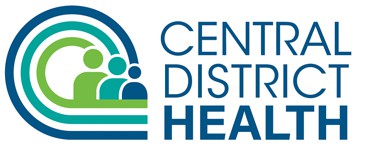Sexually Transmitted Infections (STIs) are infections you can contract through sexual contact. The causes of STDs are bacteria, parasites, yeast, and viruses. Examples of STIs include:
CDC – Chlamydia
Chlamydia is an infection caused by the bacteria Chlamydia trachomatis. It is one of the most common STIs. Many people do not have symptoms when they have an infection with chlamydia, but some people do have abnormal discharge, burning while peeing or pain and swelling. If left untreated, chlamydia can lead to serious complications including infertility, pelvic inflammatory disease and ectopic pregnancy. Chlamydia testing is done through a urine sample or by a swab. Chlamydia is treatable but repeatable.
CDC – Gonorrhea
Gonorrhea is an infection caused by the bacteria Neisseria gonorrhoeae. Many people do not have symptoms when they have an infection with gonorrhea, but some people do have pain while peeing, abnormal discharge, and pelvic pain. If left untreated, gonorrhea can cause serious complications including infertility and ectopic pregnancy. Gonorrhea testing is done through urine sample or by a swab. Gonorrhea is treatable but repeatable.
CDC – Hepatitis
Hepatitis is an inflammation of the liver that is caused by a variety of infectious viruses and noninfectious agents leading to a range of health problems. Hepatitis types B (HBV) and C (HCV) may be spread through sexual contact and can lead to chronic disease. Hepatitis testing is done through a blood sample.
- The best way to prevent hepatitis B is to get vaccinated. All adults aged 18-59 should receive the vaccine and any adult who requests it may get the vaccine. All adults 18 years and older should get screened at least once in their lifetime. Talk with your health care provider to see if you might be an appropriate candidate for this vaccine.
- There is no vaccine for hepatitis C (HCV), but treatments exist. The best way to prevent hepatitis C is by avoiding behaviors that can spread the disease, such as drug use. Getting tested for hepatitis C is critical, because treatments can cure most people with hepatitis C in 8 to 12 weeks.
CDC – Herpes Simplex Virus (HSV)
Herpes simplex virus, known as Herpes, is a common infection that can cause painful blisters or ulcers. It primarily spreads by skin-to-skin contact. It is treatable but not curable. Most people have no symptoms or only mild symptoms. The infection can cause painful blisters or ulcers that can recur over time. Medicines can reduce symptoms but can’t cure the infection. There are two types of herpes simplex virus.
- Type 1 (HSV-1) mostly spreads by oral contact and causes infections in or around the mouth (oral herpes or cold sores). It can also cause genital herpes. Most adults are infected with HSV-1.
- Type 2 (HSV-2) spreads by sexual contact and causes genital herpes.
CDC – HIV
HIV is an infection caused by the Human Immunodeficiency Virus. Many people do not have symptoms when they have an infection with HIV, but some people do have flu-like symptoms about 2-4 weeks after infection. If left untreated, HIV can progress to AIDS. HIV testing is done with a blood draw. HIV is not yet curable, but can be managed with medication called ART, or Antiretroviral Therapy. This medication can also make the virus undetectable in your blood, which means you cannot pass it to other people. One method for reducing the risk of contracting HIV is a medication called PrEP, or Pre-Exposure Prophylaxis.
CDC – Human Papillomavirus (HPV)
Human Papillomavirus is an infection that an individual can spread even if they have never had symptoms. Most of the time HPV will go away on its own within two years without causing any health problems. However, when HPV does not go away it can cause health problems such as genital warts and certain types of cancer. There is no way to know what health complications may or may not occur in an individual who has contracted HPV. Fortunately, there is a vaccine for HPV that is extremely effective at preventing HPV infections.
CDC – Syphilis
Syphilis is an infection caused by the bacteria Treponema pallidum. Many people do not have symptoms when they have an infection with syphilis, but some people do have painless sores, rash, fever, swollen lymph nodes, sore throat, patchy hair loss, joint pain, and fatigue. If left untreated, syphilis can lead to serious complications including organ damage. The syphilis bacteria can be passed from a mother to her unborn baby during pregnancy or childbirth and can have serious impact on the baby. Syphilis testing is done with a blood draw. Syphilis is treatable but repeatable.
STIs can affect anyone. Antibiotics can treat STIs caused by bacteria, yeast, or parasites. CDH offers education, testing and treatment for chlamydia, gonorrhea, syphilis, herpes, hepatitis B and C and HIV. Get tested. Call us for an appointment: 208-327-7400.
Vaccines have been developed and approved by the FDA to prevent Hepatitis B and HPV. Talk with your health care provider to see if you might be an appropriate candidate for either of these vaccines.
FAQS
Counseling and testing for chlamydia, gonorrhea, syphilis, herpes, hepatitis B and C and HIV are available.
Vaccines have been developed and approved by the FDA (Food and Drug Administration) to prevent two STIs:
CDC – Hepatitis B Vaccination
CDC – HPV Vaccination – Genital Warts
Talk with your health care provider to see if you might be an appropriate candidate for either of these vaccines.
CONTACT
Can’t find the information you need? Please complete the form or give us a call.

